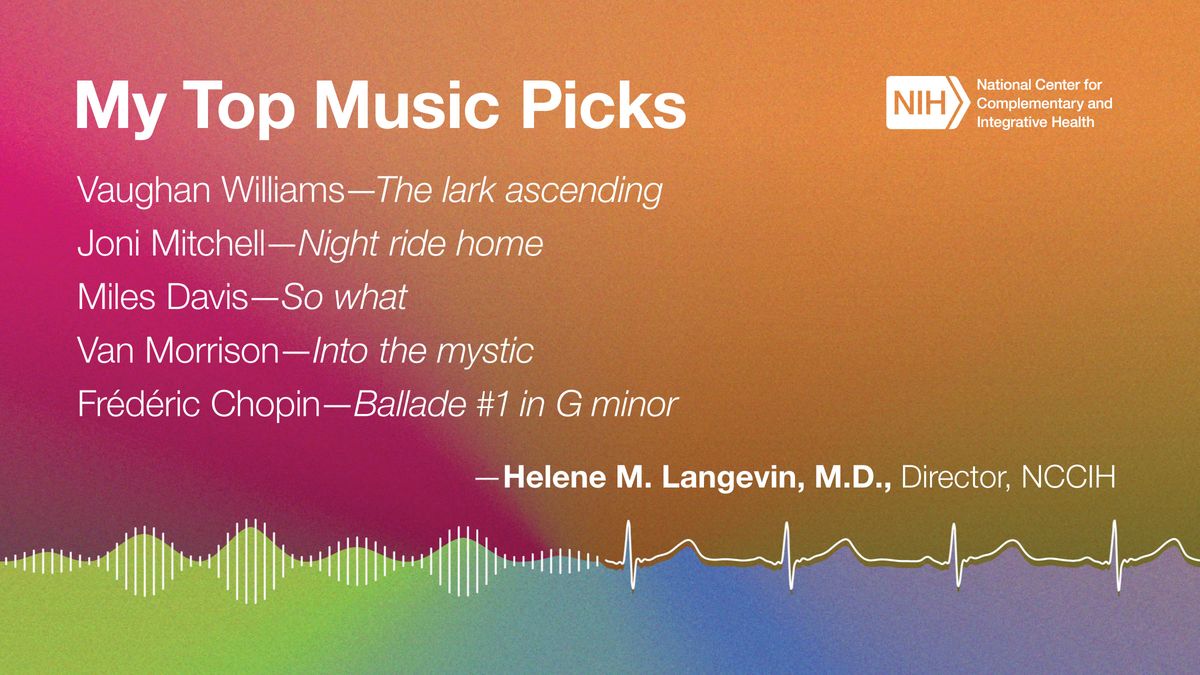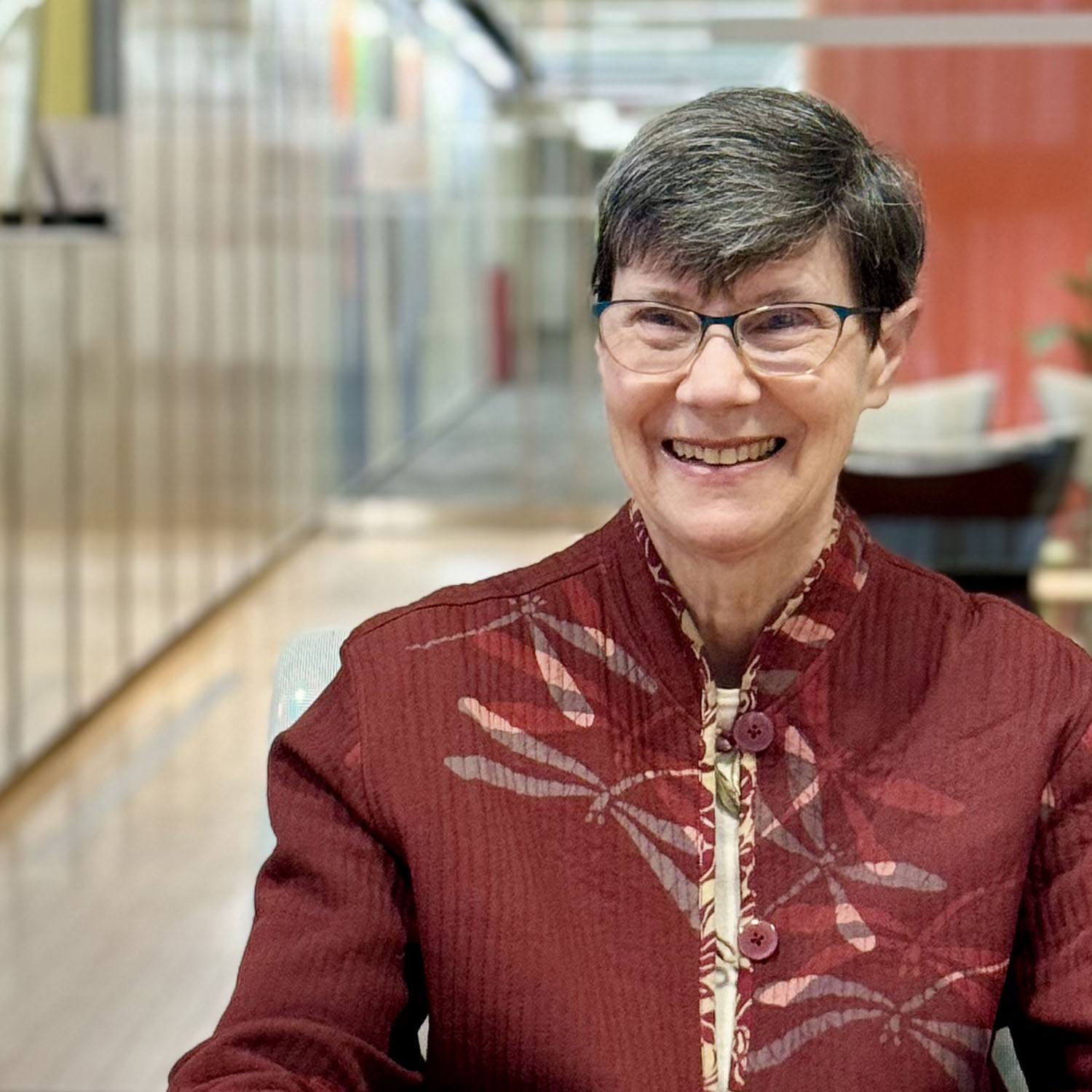A Symphony of Experts Comes Together To Discuss Research on Music and Health
Director’s Page
Helene M. Langevin, M.D.
November 28, 2023
It’s no surprise that music can affect us, both physically and mentally. A song can bring up vivid memories, keep our feet moving during a strenuous workout, or help us unwind after a long day. I play the piano, and I’m especially fond of the meditative compositions of Philip Glass. When I set my fingers on the keys to play one of his works, I can feel just how deeply the relationship runs between music and our minds and bodies. Indeed, a growing body of research is telling us that our health can be affected by listening to or making music. This raises a critical research question that the National Center for Complementary and Integrative Health (NCCIH) is working to explore—how do we harness the power of music to help manage different conditions or symptoms?
I’m excited to dig into the many aspects behind this important question at our upcoming workshop, “Music as Medicine: The Science and Clinical Practice,” on December 14–15, 2023. The 2-day event will ground us in what we’ve learned in recent years and chart a path forward for growing both the research and the research workforce equipped to drive deeper scientific understanding of this topic.
The workshop is part of the Sound Health initiative, which was established in 2017 to increase understanding of music’s effect on the brain and the potential clinical applications. NCCIH has been a leading collaborator in the initiative, and I’m especially appreciative of Emmeline Edwards, Ph.D., director of NCCIH’s Division of Extramural Research, who has been deeply invested in driving NCCIH’s work with Sound Health.
Since the first Sound Health research projects began in 2019, the evidence has pointed to the scientific promise of music-based interventions. Early studies suggest that music-based interventions could help alleviate anxiety, depressive symptoms, and pain associated with a variety of health conditions, as well as some other symptoms associated with dementia, multiple sclerosis, Parkinson’s disease, and other conditions.
The importance of exploring accessible complementary approaches to these health challenges can’t be overstated. One in 5 Americans suffers from chronic pain, 1 in 10 is affected by depression, and among adults over age 65, 1 in 10 have some form of dementia. In each of these conditions, available treatments often leave many patients without adequate relief, symptom management, or quality of life. That’s why it’s vital that we continue to chart future directions for the Sound Health initiative and build on what we’ve already learned about music-based interventions. As the evidence behind music-based interventions continues to grow, these approaches may be poised to become well-established and effective tools used in clinical settings. Research can point to how tapping the power of music as therapy may help people manage symptoms of various conditions and achieve better health outcomes.
One reason that research on this topic is so exciting to me is that further studies will no doubt help us better understand important interactions between the brain and the body essential to building a more complete picture of whole person health. We already know that music-based interventions can “light up” various parts of our brains involved in thinking, sensation, movement, and emotion. I expect that continued research will increasingly document linkages between musical stimulation in the brain and the cascading effects throughout the body, affecting neurotransmitters, hormones, cardiovascular, musculoskeletal, and respiratory responses, and much more.
I’m grateful to our workshop co-chairs, Dr. Francis Collins, former director of the National Institutes of Health (NIH) and talented musician in his own right, and Ms. Renée Fleming, the renowned soprano singer and a passionate health advocate. The Sound Health initiative was launched under their leadership, and their continued involvement brings invaluable expertise to the effort.
I invite you to learn more about the upcoming workshop and the robust agenda that includes experts from Institutes and Centers across NIH, the National Endowment for the Arts, and academic centers, as well as esteemed musicians and others. As you review the agenda and register for the workshop, I hope you’ll give a listen to one of my favorite Philip Glass compositions, Etude No. 16, performed by Timo Andres.
For More Information
Register to watch Music as Medicine: The Science and Clinical Practice, December 14–15, 2023

